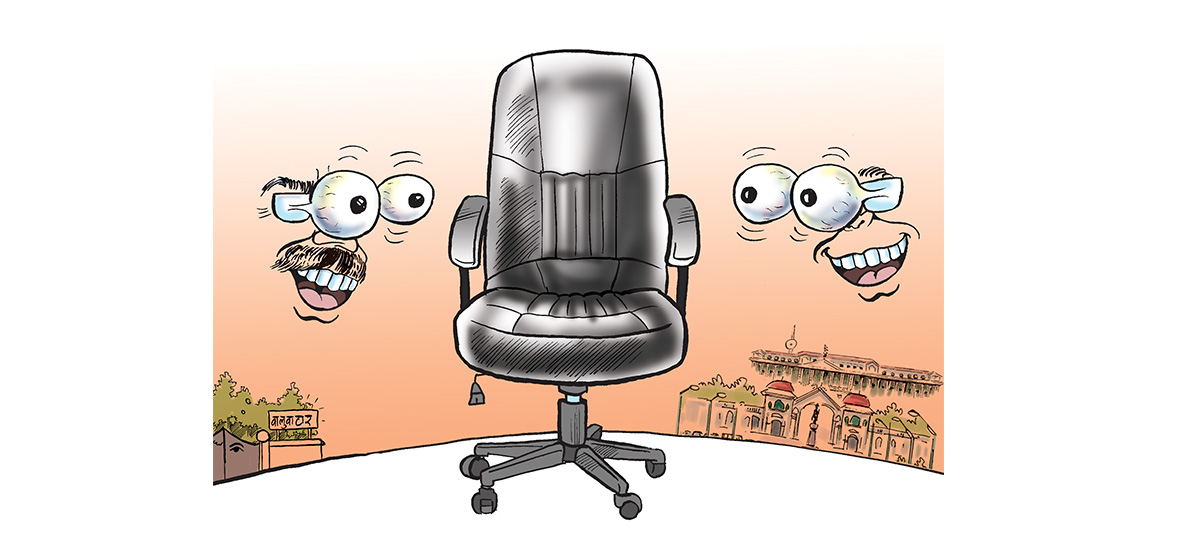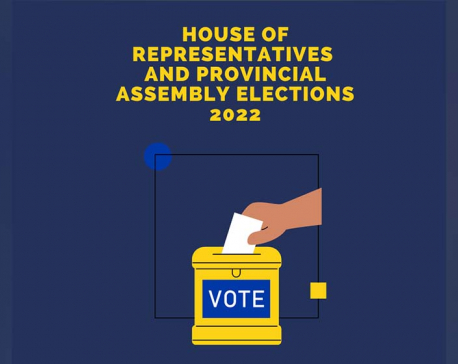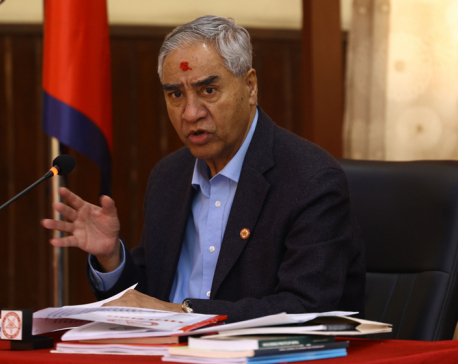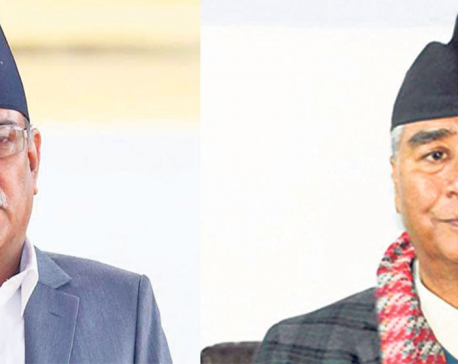
OR
Ruling parties face challenge to reach a deal on power sharing in 34 state positions as negotiation to form new govt continues
Published On: December 6, 2022 12:10 PM NPT By: Ishwari Subedi

KATHMANDU, Dec 6: As the time to announce the final results of the elections is approaching, major parties in the country are focused on forming the new government. But before the formation of the government, the issue of appointing the 34 officials in the federal and the province is becoming challenging. Even though the ruling coalition has shown more priority for the formation of the government, the UML is also quietly advancing its preparation.
Since none of the political parties could secure a requisite majority seats in the election, a government has to be formed as per Article 76 (2) of the Constitution. Article 76 (2) of the constitution states that the President shall appoint the member of the House of Representatives who can obtain a majority with the support of two or more parties as the Prime Minister.
In the election held on November 20, the Nepali Congress (NC) is set to secure 89 seats under the First Past the Post (FPTP) and Proportional Representation (PR) electoral system in the House of Representatives, the Maoist Center is set to win 32 seats, the CPN (Unified Socialist) 10 seats, the Loktantrik Samajwadi Party (LSP) 4 seats, and the Rastriya Janamorcha 1 seat. If we take into account the number of seats in parliament, the ruling coalition needs the support of a party with more than two seats to form the government.
However, the analysis shows that it would be more challenging to appoint the 34 office bearers in the federal and the province as the party with the majority in the government should also be given the position of office bearers. NC, Maoist Center, Unified Socialist, Rastriya Janamorcha and LSP, which are part of the ruling coalition, contested the election after forging an electoral alliance, while the UML contested the election by forming another alliance.
A meeting of the ruling coalition was held on Monday at the Prime Minister's official residence in Baluwatar. Sources say that even though the election results were reviewed in the discussion, there was no agreement to share 34 office bearers’ position and there was no possibility of government formation. A leader said that the ruling coalition may break up if the shares are not agreed among the 34 office bearers.
Now, there is an obligation to form a coalition government. Before the formation of the government, consensus should be sought among the federal and provincial officials, he said.
Similarly, according to sources, there is a situation in the federal parliament where the positions of president, vice president, prime minister, speaker, deputy speaker, and national assembly speaker have to be divided, while in seven provinces, the province head, chief minister, provincial speaker, deputy speaker and other posts have to be divided and agreed upon in the package. As the post of the Speaker of the National Assembly will also expire after one year, a consensus should be sought now, said the source.
It is estimated that there may be a delay in the formation of the government even as the focus is on finding a consensus on the share of office bearers in the federal and the provinces. The Election Commission (EC) has prepared to announce the final results within a week. After the election results are submitted to President Bidya Devi Bhandari, the work of forming the government and calling the parliament session should proceed.
Sources said that after the final result, the situation of forming the government is not easy until the share of office bearers is completed. The alliance is going to proceed formally only after all the parts have been completed. Sources said that the five-party alliance has informally discussed but no agreement has been reached yet on these issues. The situation has come to seek the agreement of not only the NC-Maoist Center and the Unified Socialist but also other parties for the power sharing deal.
In the previous five-year tenure, with the alliance of UML and the Maoist Center, Community Party of Nepal (CPN) dominated in all office bearers for two and a half years. The UML and Maoists had dominated the division and integration from the federal to the provinces. Earlier, the President and Prime Minister were from UML, Vice President and Speaker from Maoist Center, Deputy Speaker and National Assembly Speaker from UML, Deputy Speaker of National Assembly from Maoist. The UML and the Maoist Center dominated even the committees of the National Assembly and the House of Representatives.
Until the split within the CPN, the NC in its capacity as the main opposition party had only the Chairman of the Public Accounts Committee in the House of Representatives and the Chairman of the Sustainable Development Committee in the National Assembly.
You May Like This

Youth at the Helm
As a rule of thumb, the largest political party in parliament always gets the first chance to form the government... Read More...

Coalition forged among pro-democracy forces: PM Deuba
DANG, May 9: Nepali Congress (NC) President Sher Bahadur Deuba has said that the current coalition was forged among political... Read More...

Distribution of ministerial berths among ruling coalition decided, NC to hold eight ministries
KATHMANDU, Oct 6: The senior leaders of the ruling coalition have reached an agreement on the distribution of ministerial berths... Read More...




Just In
- Govt receives 1,658 proposals for startup loans; Minimum of 50 points required for eligibility
- Unified Socialist leader Sodari appointed Sudurpaschim CM
- One Nepali dies in UAE flood
- Madhesh Province CM Yadav expands cabinet
- 12-hour OPD service at Damauli Hospital from Thursday
- Lawmaker Dr Sharma provides Rs 2 million to children's hospital
- BFIs' lending to private sector increases by only 4.3 percent to Rs 5.087 trillion in first eight months of current FY
- NEPSE nosedives 19.56 points; daily turnover falls to Rs 2.09 billion















Leave A Comment